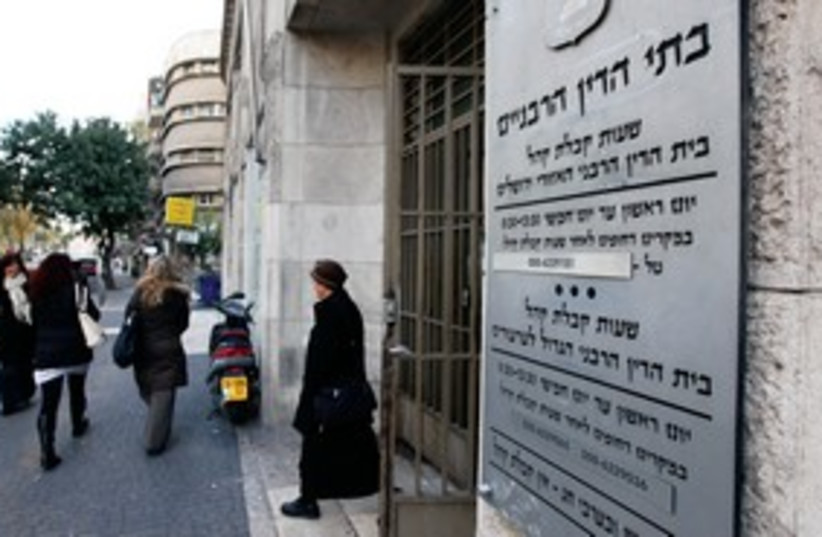67% of Israeli respondents to a Menomadin Center for Jewish and Democratic Law poll said they are ready for policy change regarding Israel’s strict halachic conversion process, a speaker at a discussion held Tuesday in the Knesset's Aliyah and Absorption Committee regarding the proposed policy change said.
The 67% support for the facilitation and accessibility of the Jewish conversion process marks a 17% increase from previous surveys.
"At a time when it is important to preserve unity, there are those who refrain from dealing with sensitive issues, but a survey we conducted together with the Menomdin Center shows that the Israeli public is ready for a policy change on the question of conversion," Mordechai Askin, Director of Religion and State at the One Million Lobby, said at the Knesset event.
Israeli conversion process

The much-politicized issue of Jewish conversions has seen Israel’s left and right-wing debate the merits of halachic conversion and what should be considered a legitimate conversion for decades. Strict conversion practices based on halachic regulations have drawn criticism among the greater Israeli society in the past.
For instance, Alina Palhati, a 21-year-old Russian-Israeli woman who was murdered by Hamas at the Supernova music festival on October 7th, was buried "outside the fence" of the cemetery in Beit She’an, because she had not yet completed the process of converting to Judaism at the time of her death and thus was not considered eligible for a proper Jewish burial.
Oded Forer, who chairs the Knesset’s Aliyah, Absorption, and Diaspora Affairs Committee, responded that he was “ashamed on behalf of the State of Israel that you were treated this way.” He called Palhati’s treatment “the greatest insult to someone who sanctified the land of Israel with their blood, who left their place in exile to come here."
In December, Israel’s Supreme Court ruled that Reform and Conservative conversions conducted in Israel should be recognized under the Law of Return to confer Israeli citizenship – a decision that was reached after nearly 15 years of deliberations, highlighting the level of bureaucracy and how embedded existing regulations are.
“We call for a substantial relaxation of the halachic threshold required of converts to change their lifestyle and giving weight to their readiness to fight with devotion to defend the State of Israel," Askin declared at the Knesset event.
